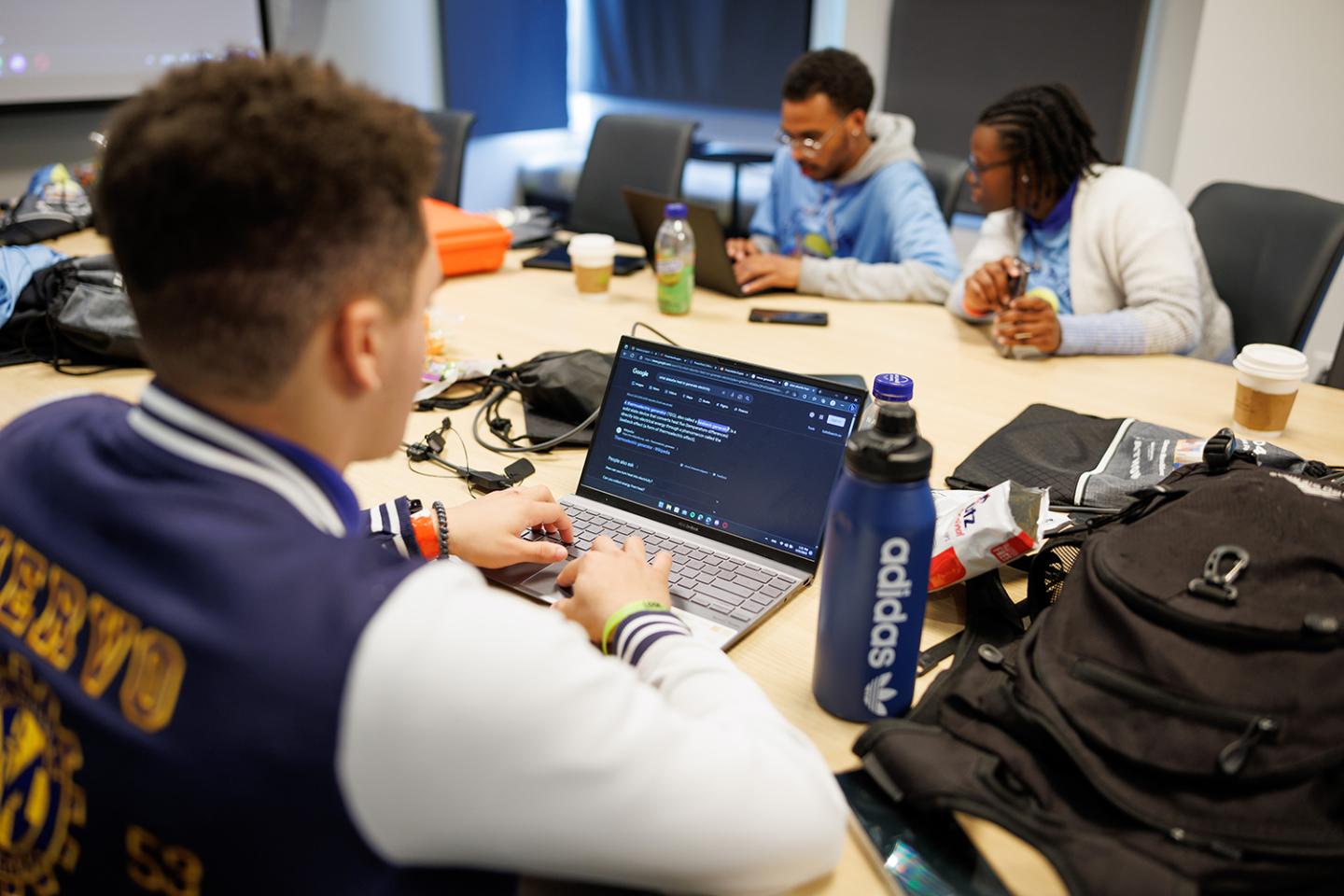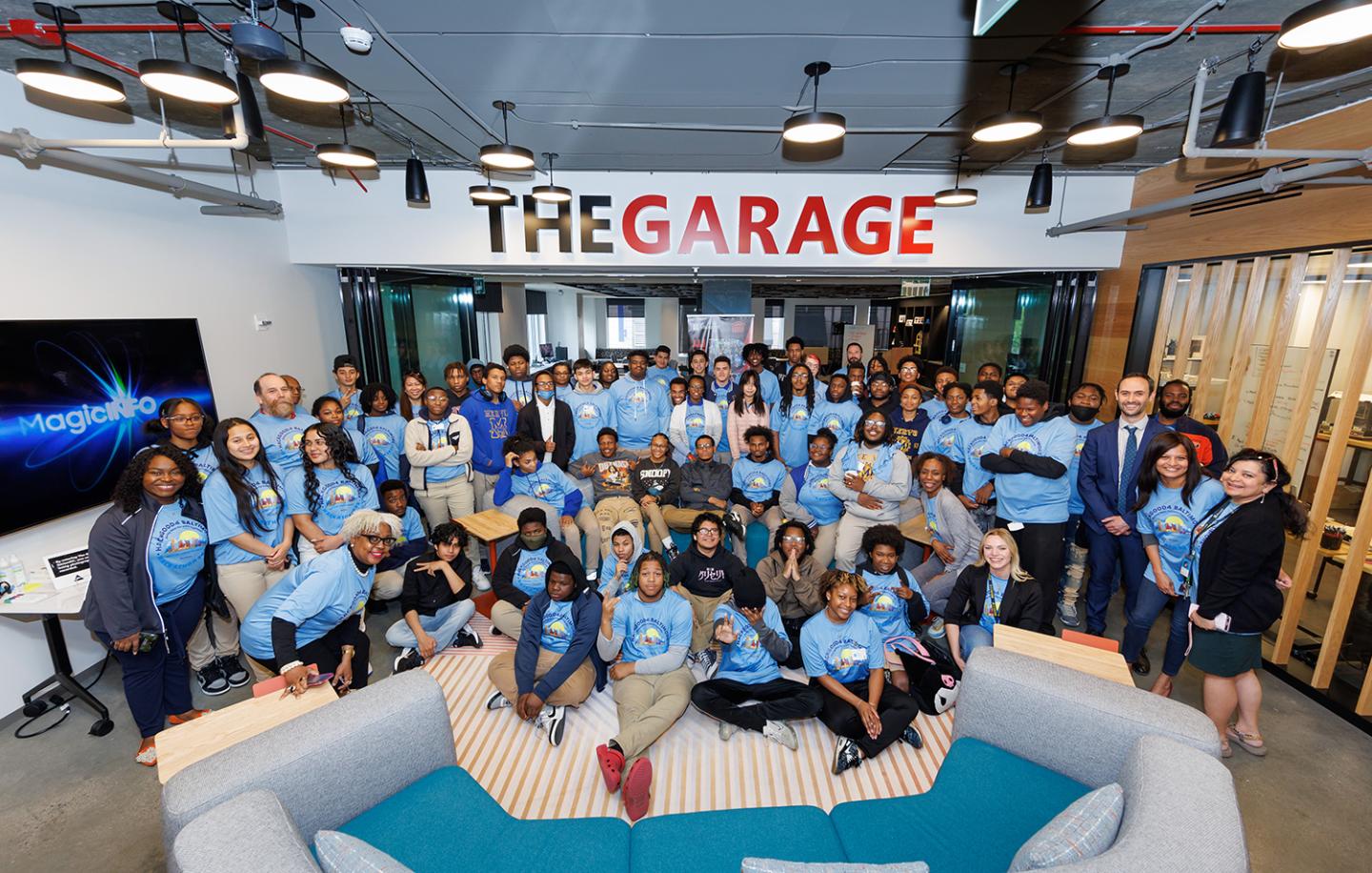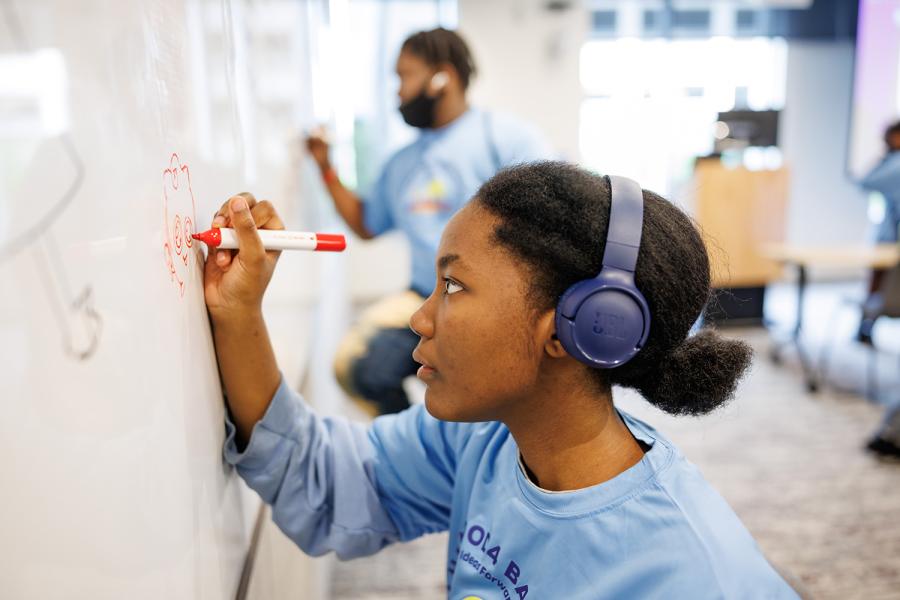Students from three Baltimore high schools recently spent a day developing and presenting ideas for how communities in cities such as Baltimore can become more resilient against the effects of climate change and how city residents can better cope with heat stress and other climate-related health threats.
The day-long HackGood4 Baltimore hackathon, developed by the Johns Hopkins Office of Economic Development and Community Partnerships in collaboration with Microsoft, encouraged more than 60 students from Baltimore's Mervo, Poly, and Reginald F. Lewis high schools to think creatively about how to confront an important issue that impacts their city.
Students traveled to the Microsoft Garage in Reston, Virginia, on Tuesday, April 25, for the second annual event and worked in teams to develop equitable and actionable solutions.
"Encouraging students to take an active role in addressing sustainability challenges is important," said Julian Goresko, sustainability director for Johns Hopkins University and one of the judges for the hackathon. "The creative and innovative solutions presented today are valuable. They show these students are aware of the issues the city is experiencing and how actionable solutions can impact change."

Image caption: More than 60 students from three Baltimore high schools took part in the second HackGood4 Balttimore hackathon.
Image credit: Avi Gerver Photography for Johns Hopkins University
Collaborative solutions presented by the student teams included ideas related to creating green spaces, rethinking infrastructure design, and using eco-friendly paint. In addition to thinking creatively about how to address a real-world challenge, the teens also had the opportunity to strengthen important skills, including leadership, communication, presentation, and teamwork.
"It was great to see how this new experience inspired students to really think about the issues surrounding their city, especially in relation to sustainability, urban island heating, and the effects of climate change on vulnerable populations," said Meghan Brown, program manager for the Johns Hopkins Health Education and Training Corps, or HEAT Corps. "I think choosing challenges surrounding issues specific to urban areas like Baltimore really opened their eyes to issues and solutions that they did not previously think about."
Added Brad Holloman, strategic account executive for Microsoft North America: "We had an amazing time at the HackGood4 Baltimore hackathon. It was phenomenal to see high school students from all over the city working together and coming up with innovative ideas to make our city more climate-resilient and fair for everyone. It just goes to show how much potential our young people have to make a real difference. I'm excited to see where these ideas will take us."

Image caption: The event took place on April 25 at the Microsoft Garage in Reston, Virginia.
Image credit: Avi Gerver Photography for Johns Hopkins University
Posted in Community
Tagged community, sustainability








